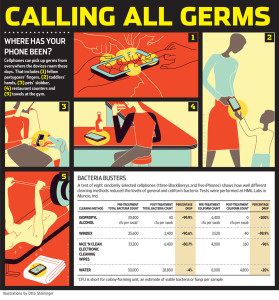Lets face it, this generation is addicted to their cell phones and on those cell phones they are usually browsing social media websites such as Facebook, Twitter, Instagram and Snapchat. The amount of time I spend on social media, which is far too much I will admit, got me wondering. Is there a correlation between social media and depression? I predict that this correlation was highly likely.
Studies have found that Facebook causes many to feel envy when they see those they know being successful. There was a study done at the University of Missouri where 736 college students were asked a few survey questions (Beres). The majority of the students spent about two hours on Facebook each day (Beres). A little background on the study was that, “Seventy-eight percent of the subjects identified as white Americans, and 68 percent identified as female, with a median age of 19” (Beres). The participants were asked various questions. They were asked to “rate how much they agreed with statements linked to feelings of envy, such as, “I generally feel inferior to others,” or “It somehow doesn’t seem fair that some people seem to have all the fun.” Then, participants rated how much they agreed with phrases that corresponded to depression, such as, “I was bothered by things that usually don’t bother me” and “I talked less than usual” (Beres). The researchers then concluded that, “ while heavy Facebook use was not linked directly to depression, frequent users who experienced feelings of envy were more likely to identify with statements corresponding to depression. These tended to be users who compared their own lives to friends’ photos of luxurious vacations, status updates about good news and so on” (Beres). Clearly this study was a large one and it is helpful to know the demographics when looking at a study. For instance, knowing that 68 percent of the participants were female can help us to conclude that girls are more likely to envy those they see one Facebook who look successful. This makes sense that they would experience envy and then identify with statements that were depressing. I felt like this study was pretty one sided since it dealt mainly with 19 year old females, so I looked into other studies.
Next there was an experiment done by Austrian researchers that proclaimed that people feel crappy every time they’re on Facebook, no matter what they see. They came to this conclusion after conducting two experiments. The experiment consisted of a decent sample size, considering there were, “300 English and German-speaking participants”. The first experiment was pretty simple. The researchers asked the “participants to indicate how much time they’d spent on Facebook that day and then rate their mood” (Hiscott). The second experiment was a little more complex. They “asked one group of people to spend 20 minutes on Facebook — posting status updates, chatting with friends and scanning their News Feeds — while another group spent 20 minutes browsing the Internet without visiting any social media sites. A third control group was given no instructions at all” (Hiscott). Then the researchers asked all three groups the same question, “How meaningful was the time they spent online?”(Hiscott).
The researchers concluded that people felt worse after using Facebook because they believed they weren’t using their time meaningfully. In other words, all the participants felt like their time on Facebook wasn’t meaningful. When people do things that aren’t meaningful, they aren’t going to be in a good mood. This study shows once again that Facebook can greatly affect our moods and eventually lead us to feel depressed.
>
> Looking at the experiments performed by the Austrian researchers, we must consider a few things. First, I believe that their evidence to support the conclusion that Facebook can affect our moods and lead to depression is weak. Therefore, I do not believe that the studies prove the correlation. However, if they explained the study and maybe asked the participants to rate how they felt after they used Facebook and write down a few of there feelings, this could show a stronger correlation.
All and all, I think it’s clear that there are some great studies when it comes to Facebook and Depression. However, I do believe that in years to come there will be greater evidence to support the correlation between Facebook and depression.
Works Cited
Beres, Damon. “Heavy Facebook Use Makes Some People Jealous And Depressed: Study.”
The Huffington Post. The Huffington Post.com, n.d. Web. 22 Oct. 2015.
Hiscott, Rebecca. “Why You Feel Terrible After Spending Too Much Time On Facebook.”
The Huffington Post. The Huffington Post.com, n.d. Web. 22 Oct. 2015.






 ms are on our devices such as phones, computers, IPads and laptops? Can these germs make us sick? Lastly, are there more germs in the bathroom or on our cell phones?
ms are on our devices such as phones, computers, IPads and laptops? Can these germs make us sick? Lastly, are there more germs in the bathroom or on our cell phones?



